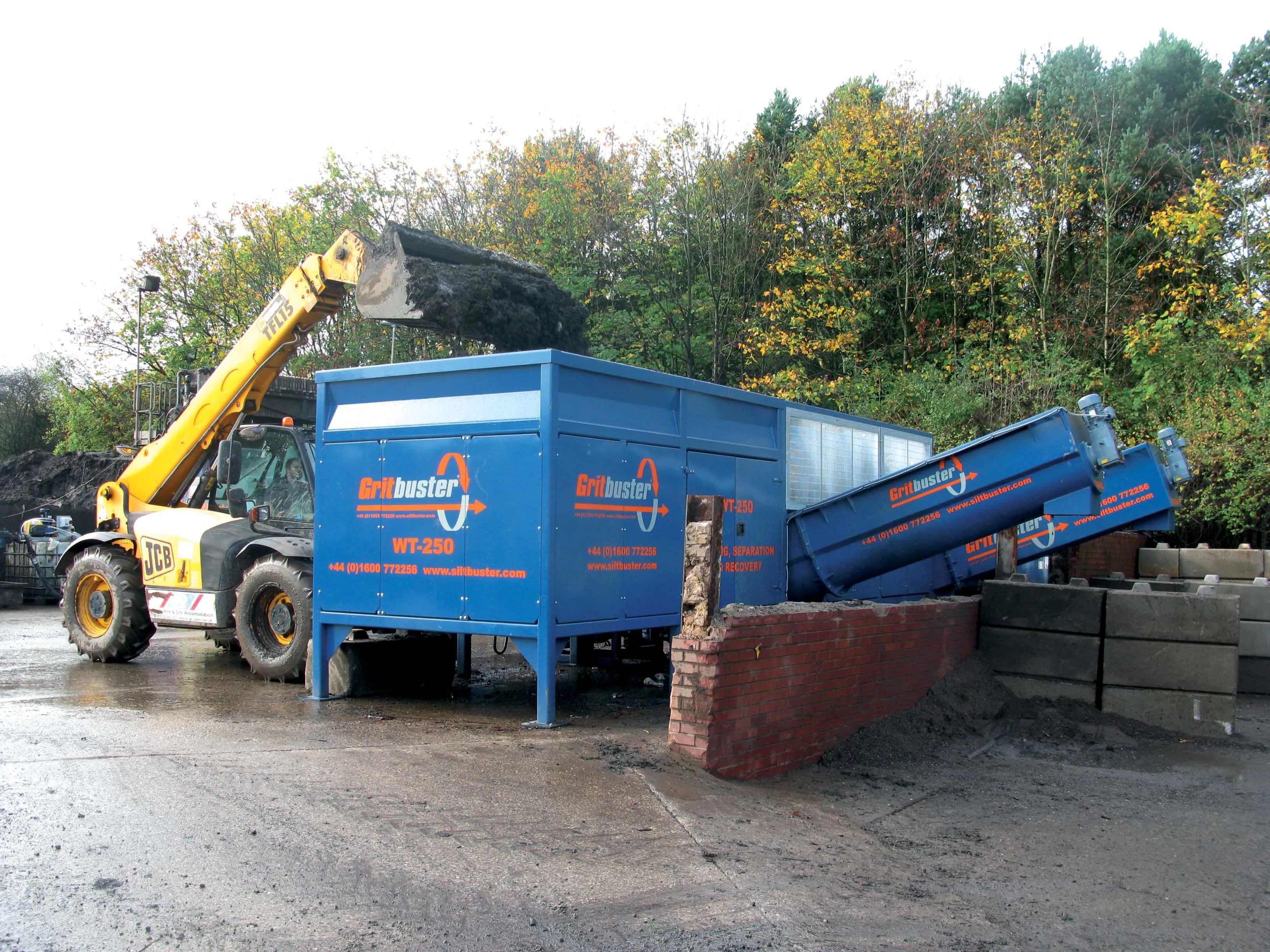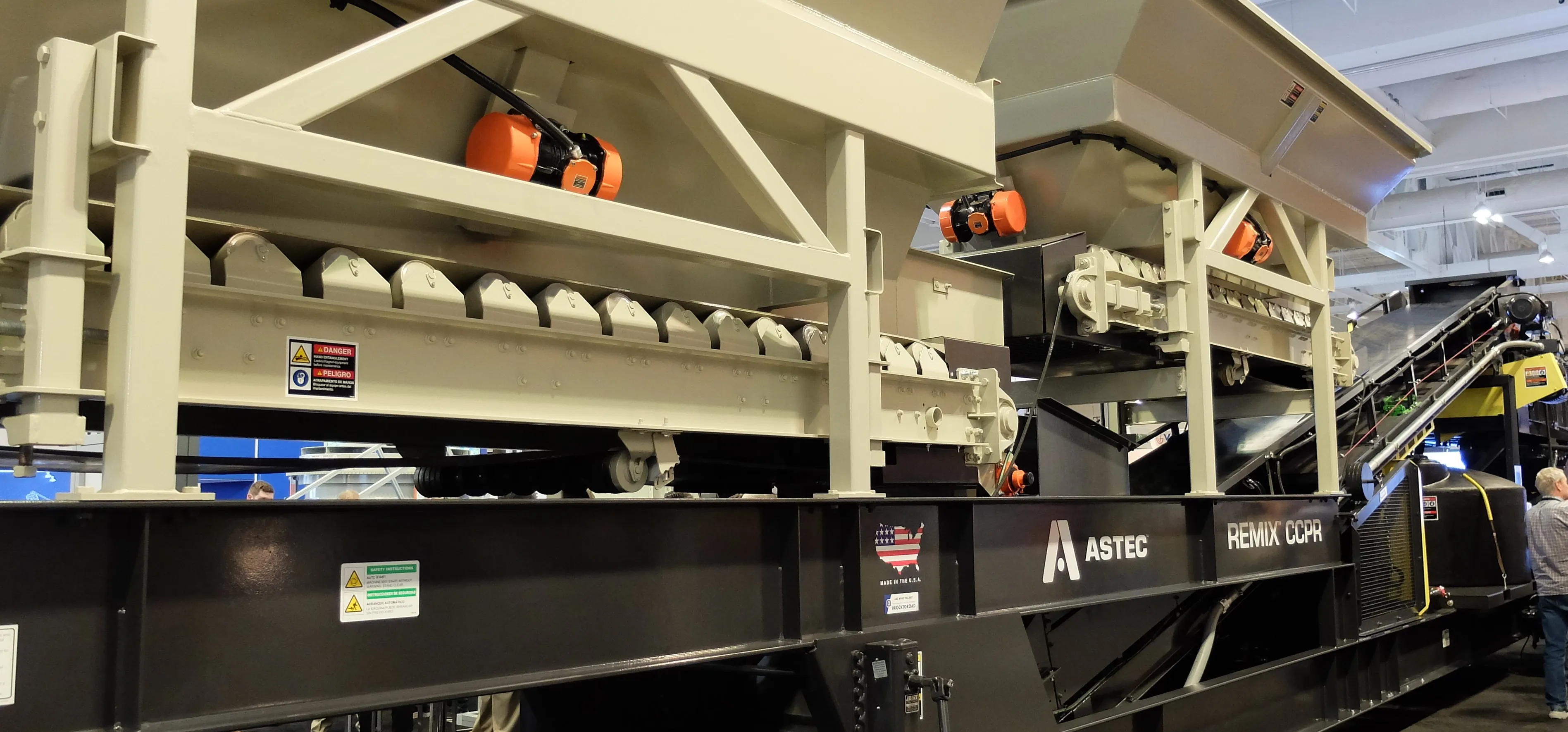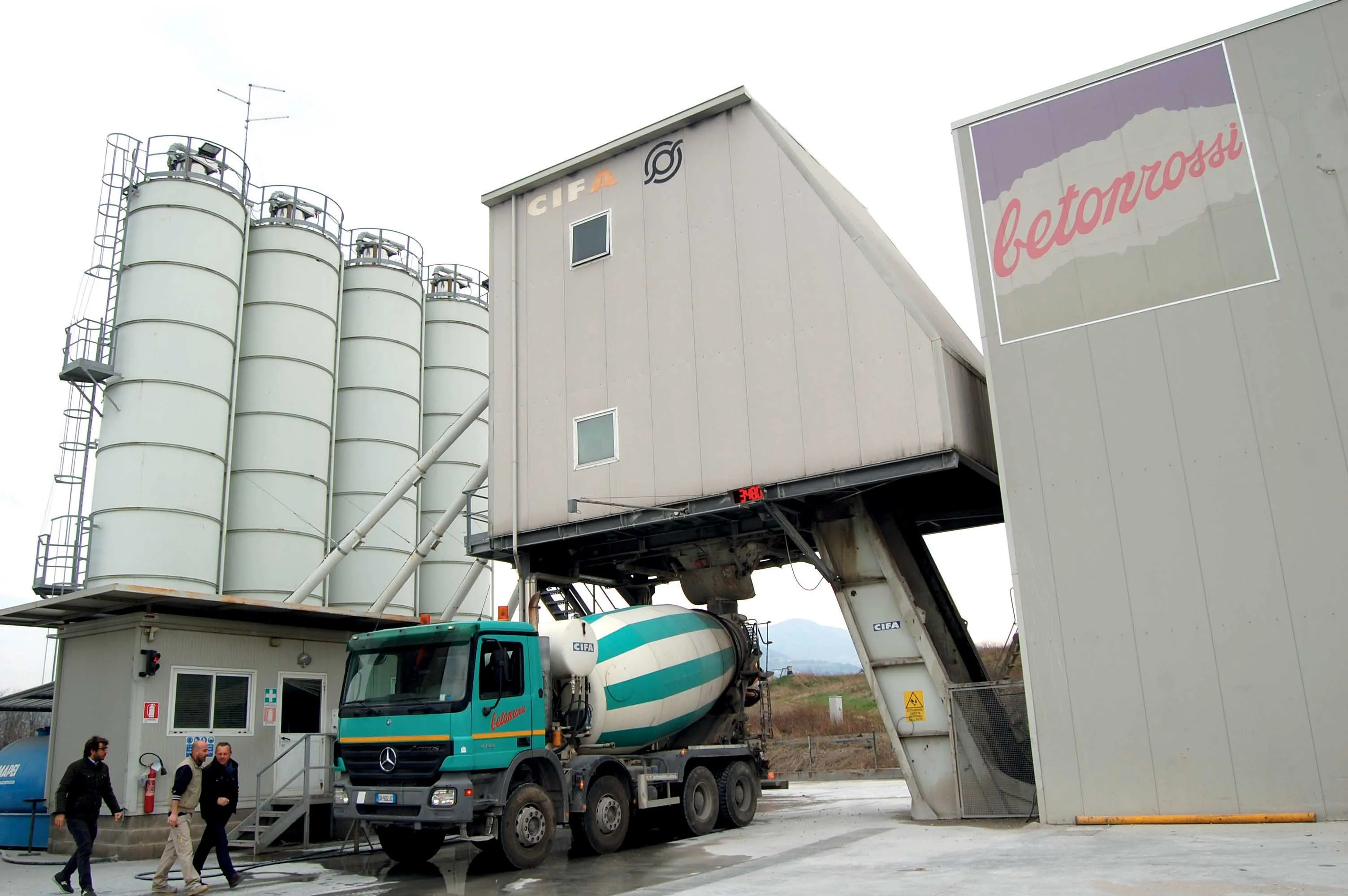UK firm Siltbuster is now offering a larger and more powerful wet waste separation system. The new Gritbuster WT-250 is a larger version of the company’s proven technology for material washing, separation and aggregate recovery.
The Gritbuster WT-250 is aimed at the road sweeping & trommel fines waste recycling markets and is capable of handling in excess of 25tonnes/hour. Using well established wet separation processes, the plant separates feedstocks into washed gravel and sand products.
Raw material
May 13, 2015
Read time: 3 mins

UK firm 8102 Siltbuster is now offering a larger and more powerful wet waste separation system. The new Gritbuster WT-250 is a larger version of the company’s proven technology for material washing, separation and aggregate recovery.
The Gritbuster WT-250 is aimed at the road sweeping & trommel fines waste recycling markets and is capable of handling in excess of 25tonnes/hour. Using well established wet separation processes, the plant separates feedstocks into washed gravel and sand products.
Raw material can be loaded using a wheeled loader or telescopic loader from existing stockpiles and a screw feed auger is fitted that can handle both dry and wet feedstocks. The unit has a wet trammel that is specifically designed to wash and separate aggregate, while minimising the risk of contaminating sand with organic matter and this design helps to produce a clean sand product. In addition, an integral hydraulic density separator is used to separate coarse aggregate from plastic or organic matter for example, increasing recycling potential.
The new unit allows the recovered sand and gravel to be reused as non-structural fill or secondary aggregate if processed in accordance with the WRAP Protocol. The system also minimises fresh water requirements by operating in a closed loop when used with a Siltbuster Water Treatment Plant and Filter Press. And its compact design allows for installation on existing sites and integration with existing processes.
A key aspect of the new design is the integral hydraulic density separator. The firm says that this makes the new Gritbuster WT-250 highly suitable for handling trommel fines and other drier feed material. The hydraulic density separator is able to separate the larger material fractions by density rather than just physical size. This means heavier recyclables such as stone and aggregate are recovered in a cleaner recyclable form, from the lighter recyclables such as plastic, paper, wood and other floating materials. This has advantages in terms of LOI reduction, and it also means the lighter items can themselves be recovered and go for recycling.
There is a serious cost benefit too as it means that materials that would previously have had to be dumped at costly landfill sites can now be recovered and then sold as a product.
The new Gritbuster WT-250 can be supplied on its own or with a packaged Water Treatment & Recycling System and Filter Press.
The Gritbuster WT-250 is aimed at the road sweeping & trommel fines waste recycling markets and is capable of handling in excess of 25tonnes/hour. Using well established wet separation processes, the plant separates feedstocks into washed gravel and sand products.
Raw material can be loaded using a wheeled loader or telescopic loader from existing stockpiles and a screw feed auger is fitted that can handle both dry and wet feedstocks. The unit has a wet trammel that is specifically designed to wash and separate aggregate, while minimising the risk of contaminating sand with organic matter and this design helps to produce a clean sand product. In addition, an integral hydraulic density separator is used to separate coarse aggregate from plastic or organic matter for example, increasing recycling potential.
The new unit allows the recovered sand and gravel to be reused as non-structural fill or secondary aggregate if processed in accordance with the WRAP Protocol. The system also minimises fresh water requirements by operating in a closed loop when used with a Siltbuster Water Treatment Plant and Filter Press. And its compact design allows for installation on existing sites and integration with existing processes.
A key aspect of the new design is the integral hydraulic density separator. The firm says that this makes the new Gritbuster WT-250 highly suitable for handling trommel fines and other drier feed material. The hydraulic density separator is able to separate the larger material fractions by density rather than just physical size. This means heavier recyclables such as stone and aggregate are recovered in a cleaner recyclable form, from the lighter recyclables such as plastic, paper, wood and other floating materials. This has advantages in terms of LOI reduction, and it also means the lighter items can themselves be recovered and go for recycling.
There is a serious cost benefit too as it means that materials that would previously have had to be dumped at costly landfill sites can now be recovered and then sold as a product.
The new Gritbuster WT-250 can be supplied on its own or with a packaged Water Treatment & Recycling System and Filter Press.









